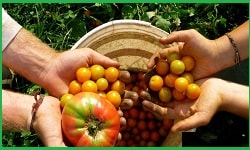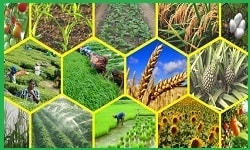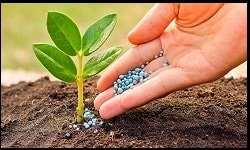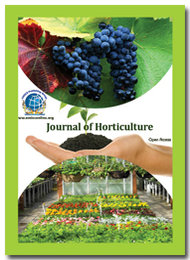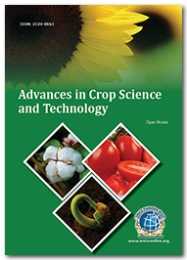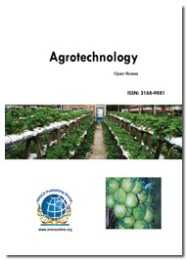Welcome to Agriculture Asia Pacific 2020!
On behalf of Agriculture Asia Pacific 2020 Organizing Committee, we take immense pleasure in inviting all the participants over the world to attend the “Global summit on Agriculture & Organic farming” which will be held during August 17-18, 2020 at Tokyo Japan with the theme “A Sustainable Eco-Friendly Agricultural Approach to Crop Improvement”.
Why to attend?
The present research on Emerging technologies and Strategies, Integrated farming and Sustainable Agriculture, Crop improvements, the most current updates in Plant and Soil Science , Agriculture & Organic farming are hallmarks of this Conference. Lead introductions, disseminate data, foster networking with present and potential specialists, make a splash with latest improvements, and participation acknowledgment at this II day occasion.
Agriculture Asia Pacific 2020 makes you move, learn and embrace better approaches to enhance Agriculture and Organic Framing professional career prospects.
Key Reasons:
-
World Class Speakers and Emerging new Talent from across the Globe in Agriculture Industry
-
Packed Schedule: Workshops, Multi-track Conference, Expo area and more
-
To educate yourself on the Latest Innovations and Novel technologies in the fields of Agri, food, Aqua Live stock , Horticulture, Integrated farming.
-
To enhance your ability and skills for the crop improvements, Soil Management, Yield enhancement.
-
To network with your fellow researchers in the field of Plant science and Food security .
-
To empower yourself to fill the void created by the national shortage of participants.
Target Audience:
-
Agriculture Science Faculty, Students, Scientists
-
Plant Science Faculty, Students, Scientists
-
Animal Science Faculty, Students, Scientists
-
Soil Science and Agricultural Universities
-
Forestry and Landscaping Scientists
-
Agriculture and Plant Associations & Societies
-
Business Entrepreneurs and Exhibitors
-
Research & Training Institutes
-
Seed Science and Weed Management Researchers
-
Soil science and soil-plant nutrition Experts
-
Agriculture & Food Security
-
Manufacturing Agricultural Devices Companies
-
R&D Laboratories, Chemical & Fertilizers Industries
-
Media partners and Collaborators
-
International Delegates and global observers
-
Students and Young Researchers.
Agriculture Asia Pacific 2020 Conference Unique Opportunities
For Researchers and Faculty Members:
Speaker Presentations
Poster Display
Symposium hosting (4-5-member team)
Workshop organizing
For Universities, Associations & Societies:
Association Partnering
Collaboration proposals
Academic Partnering
Group Participation
For Students and Research Scholars:
Poster Competition (Winner will receive Best Poster Award)
Young Researcher Forum (YRF Award to the best presenter)
Student Attendee
Group Registrations
For Business Delegates:
Speaker Presentations
Symposium hosting
Book Launch event
Networking opportunities
Audience participation
For Business Entities :
Exhibitor and Vendor Booths
Sponsorship opportunities
Product launch
Workshop organizing
Scientific Partnering
Marketing and Networking with clients
Agriculture Asia Pacific 2020 is the reputed conference which aims to provide best platform to explore the emerging strategies and novel technologies in the fields of Agriculture and Organic Farming .
All accepted abstracts will be published in respective Scientific International Journals. Abstracts will be provided with Digital Object Identifier Cross reference. Selected contributions will be published in following subject related international Journals
-
Advances in Crop Science and Technology
-
Journal of Agrotechnology
-
Journal of Horticulture
-
Asian Journal of Plant Science & Research
-
Journal of Aquaculture Research & Development
Join us for a symphony of outstanding science, and enjoy the spectacular and unique beauty of Tokyo, Japan.
Global summit on Agriculture & Organic farming
February 22-23, 2021 Webinar
Theme: A Sustainable Eco-Friendly Agricultural Approach to Crop Improvement
On behalf of Organizing Committee of Agriculture Asia Pacific 2021, we take immense pleasure in inviting all the participants over the world to attend the “Global summit on Agriculture & Organic farming” will be held during February 22-23, 2021 with theme “A Sustainable Eco-Friendly Agricultural Approach to Crop Improvement”.
Why to attend?
The present research on Emerging technologies and Strategies, Integrated farming and Sustainable Agriculture, Crop improvements, the most current updates in Plant and Soil Science , Agriculture & Organic farming are hallmarks of this Conference. Lead introductions, disseminate data, foster networking with present and potential specialists, make a splash with latest improvements, and participation acknowledgment at this II day occasion.
Agriculture Asia Pacific 2021 makes you move, learn and embrace better approaches to enhance Agriculture and Organic Framing professional career prospects.
Target Audience:
· Agriculture Science Faculty, Students, Scientists
· Plant Science Faculty, Students, Scientists
· Animal Science Faculty, Students, Scientists
· Soil Science and Agricultural Universities
· Forestry and Landscaping Scientists
· Agriculture and Plant Associations & Societies
· Business Entrepreneurs and Exhibitors
· Research & Training Institutes
· Seed Science and Weed Management Researchers
· Soil science and soil-plant nutrition Experts
· Agriculture & Food Security
· Manufacturing Agricultural Devices Companies
· R&D Laboratories, Chemical & Fertilizers Industries
· Media partners and Collaborators
· International Delegates and global observers
· Students and Young Researchers
Agriculture Asia Pacific 2021 is the reputed conference which aims to provide best platform to explore the emerging strategies and technologies in Agriculture and Organic Farming.
Join us for a symphony of outstanding science, and enjoy the spectacular and unique beauty of Tokyo, Japan.
Organic farming refers to a specific type of agricultural production system used to produce food and fiber which prohibits farmers from using synthetic pesticides. Organic Agriculture is an ecological production management system that promotes and enhances biodiversity, Biological cycles and soil biological activity. All produce grains, meat, dairy, eggs and fibers must be derived organically. Organic farmers rely on developing biological diversity in the field to disrupt habitat for pest organisms, and to maintain soil fertility. By allowing farm animals access to the outdoors and feeding them 100% organic feed, a healthier farm system is created for people, animals and the environment. Certified organic refers to agricultural products that have been grown and processed according to uniform standards, and must be verified by organizations that have been accredited by the USDA.
|
Conventional Farming
|
Organic Farming
|
|
Centralization
|
Decentralization
|
|
Dependence
|
Independence
|
|
Competition
|
Community
|
|
Domination of nature
|
Harmony with nature
|
|
Specialisation
|
Diversity
|
|
Exploitation
|
Restraint
|
Organic farming is the method of crop and livestock production that involves much more than choosing not to use pesticides, fertilizers, genetically modified organisms, antibiotics and growth hormones. In other words, it is referred to as, low input farming and uses natural sources of nutrients such as compost, crop residues and manure, and natural methods of crop and weed control, instead of using synthetic or inorganic agrochemicals.
OBJECTIVES OF ADOPTING ORGANIC FARMING
-
To increase genetic diversity
-
To promote more usage of natural pesticides
-
Ensure the right soil cultivation at the right time
-
Keep and build good soil structure and fertility
-
Control pests, diseases and weeds
METHODS OF ORGANIC FARMING
1. Soil management
2. Weed management
3. Mulching
4. Mowing or Cutting
5. Crop diversity
6. Monoculture
7. Controlling other organisms
8. Raising Livestock Farming
9. Genetic modification
We should practice organic agriculture in a careful and responsible manner to benefit the present and future generations and the environment with food supply.
Integrated farming (also known as mixed farming) is a farming system with simultaneous activities involving crop and animal. Integrated agriculture involves farming systems with environmental, economic, social, and intergenerational sustainability. In an integrated, sustainable agriculture system, the goal is not necessarily producing immediate outputs, but rather maintaining a system of healthful production, over time. The major components of a sustainable system include economy, environment, and community. This mixed farming system recycles all wastes so that little is thrown away: one’s waste is indeed another’s food.
The resource that must be managed in such a system takes all of these related components into account. Economically, the farm operations fulfill the financial needs of the farmers and those employed by the operations. The practices in the agricultural system are executed in an environmentally sound manner, with the preservation of natural resources including soil, water, and air. The operations also sustainably provide access to food to individuals in the community, which allows for opportunities for cooperative relationships .
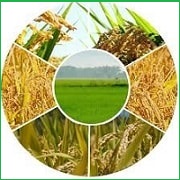
Plant pests and diseases can wipe out farmers’ hard work and cause significant losses to yields and incomes, posing a major threat to food security. Globalization, trade and climate change, as well as reduced resilience in production systems due to decades of agricultural intensification and biodiversity loss, have all played a part in the dramatic increase and spread of transboundary plant pests and diseases. Pests and diseases can easily spread to several countries and reach epidemic proportions. Outbreaks and upsurges can cause huge losses to crops and pastures, threatening the livelihoods of farmers and the food and nutrition security of millions at a time.
Crop rotation means changing the type of crop grown on a particular piece of land from year to year. As used in this manual, the term includes both cyclical rotations, in which the same sequence of crops is repeated indefinitely on a field, and non-cyclical rotations, in which the sequence of crops varies irregularly to meet the evolving business and management goals of the farmer. Good crop rotation requires long-term strategic planning. Crop rotation is the practice of growing a series of dissimilar or different types of crops in the same area in sequenced seasons. It is done so that the soil of farms is not used for only one set of nutrients. It helps in reducing soil erosion and increases soil fertility and crop yield.
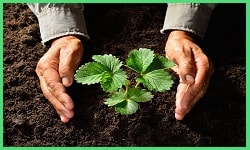
The goal of sustainable agriculture is to meet society’s food and Agri, food, Aqua needs in the present without compromising the ability of future generations to meet their own needs. Practitioners of sustainable agriculture seek to integrate three main objectives into their work: a healthy environment, economic profitability, and social and economic equity. Every person involved in the food system-growers, food processors, distributors, retailers, consumers, and waste managers-can play a role in ensuring a sustainable agricultural system. Soil health plays an essential role in raising healthy, productive crops and livestock. The many benefits of cover crops are increasingly appreciated among farmers. They play an important role in erosion control, weed control, soil conservation and soil health. With careful selection and management, they fit into any crop rotation or cropping system, such as no-till farming, and are integral to organic farming.
-
Increase profitable farm income
-
Promote environmental stewardship
-
Enhance quality of life for farm families and communities
-
Increase production for human food and fiber needs
Plant Genomics is the part of molecular biology working with the structure, function, evolution, and mapping of genomes in plants. Genomics is the study of genes, their expression and their activities, the role played in biology. Genomics is a branch of genetics that is concerned with the sequencing and analysis of organism's genome. Genomics aids us in maintaining the large number of database that assists us to study genetic variation.
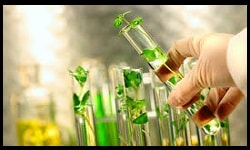
Agroecology is a scientific discipline, a set of practices and a social movement. As a science, it studies how different components of the agroecosystem interact. As a set of practices, it seeks sustainable farming systems that optimize and stabilize yields. As a social movement, it pursues multifunctional roles for agriculture, promotes social justice, nurtures identity and culture, and strengthens the economic viability of rural areas. Family farmers are the people who hold the tools for practising Agroecology. As an agricultural practice, agroecology mimics natural processes to deliver self-sustaining farming that grows a greater diversity of crops, drastically reduces artificial inputs (pesticides, fertilizers, antibiotics) and recycles nutrients (plant and animal waste as manure). These practices have obvious benefits for farmers – reduced input costs, greater autonomy from corporations, diversified income streams, risk management for crop failures and varied produce to improve nutrition.
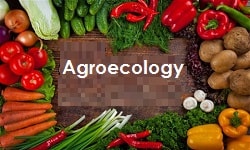
Many new plant varieties being developed or grown by farmers have been produced using genetic engineering, which involves manipulating the plant's genes through techniques of modern molecular biology often referred to as recombinant DNA technology. These techniques are included in what is often referred to as "biotechnology" or "modern biotechnology. Assessing the environmental safety of a biotech plant requires an understanding of the biology of the plant itself and the practices used in its cultivation. This knowledge is important in identifying and evaluating potential environmental. The development of an effective national biosafety system is important to encourage the growth of domestic biotechnologies; to ensure safe access to new products and technologies developed elsewhere; and to build public confidence that products in the marketplace are safe. risks and also in designing any appropriate risk management measures.
Farmers Benefit from Agricultural Biotechnology Seeds. Decades of documented evidence demonstrates that agricultural biotechnology is a safe and beneficial technology that contributes to both environmental and economic sustainability. Farmers choose biotech crops because they increase yield and lower production costs.
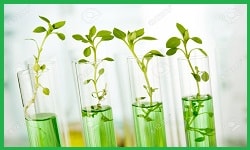
Soil management is an integral part of land management and may focus on differences in soil types and soil characteristics to define specific interventions that are aimed to enhance the soil quality for the land use selected. Good soil structure improves water infiltration and decreases runoff and erosion. Well-structured soils are porous and allow water to enter easily, rather than running off to be lost to streams and rivers. Specific interventions also exist to enhance the carbon content in soils in order to mitigate climate change. Reversing the degradation of soil, water and biological resources and enhancing crop and livestock production through appropriate land use and management practices are essential components in achieving food and livelihood security.
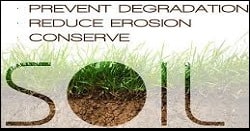
Horticulture is the study of agriculture that deals with the art, science, technology, and business of fruits, vegetables, flowers and ornamental plants. It includes production, improvement, marketing and scientific analysis of medicinal plant, fruits, vegetables, nuts, seeds, herbs, sprouts, mushrooms, algae, flowers, seaweeds and non-food crops such as grass and ornamental trees and plants. It also deals with species conservation, landscape restoration, landscape and garden design, management, and maintenance, research and marketing. Horticulturists apply their knowledge, skills, and technologies to grow plants for human food and non-food uses like garden or landscape design, decorations etc. Their field also involves plant propagation and tissue culture to improve plant growth, diversification, quality, nutritional value, and resistance and adaptation strength to environmental stresses. Major horticulture sections are Arboriculture, Turf management, Floriculture, Landscape horticulture, Olericulture, Viticulture, Oenology, Postharvest physiology.

Organi Farming focusses on the Livestock/Animal Farming. Animal Farming is described as "studying the biology of animals that are under the control of humankind." It can also be described as the production and management of farm animals. Historically, the degree was called animal husbandry and the animals studied were livestock species, like cattle, sheep, pigs, poultry, and horses. Today, courses available now look at a far broader area to include companion animals like dogs and cats, and many exotic species. Nowadays stress management is also a part of livestock farming as it finally improve product yield and quality. Pigs and poultry are reared intensively in indoor environments. However, indoor animal farming has often been criticized for multiple reasons - on grounds of pollution and for animal welfare reasons. Livestock farming plays a major role in the agricultural business and economy of major developing countries. They take an important part in crop agriculture. Most farms in the developing world are too small to avail tractor or other machinery facilities and their main alternative is animal power. The innumerable benefits of livestock farming can positively effect in a growth of agronomy, agro-economy, biological ecosystem and other agricultural fields.
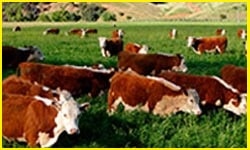
A policy orientation for food security and safety include state-wise, previous, current and future policy issues, and cope-wise sustainability of agriculture. The particular part of food distribution in our society can be examined through the research of the changes in the food supply chain. Globalization, in particular, has significant effects on the food supply chain by validating scale effect in the food distribution industry. Provision of an adequate amount of essential nutrients to human beings has ever been the challenge in the province of food security. Hence, malnutrition is heavily interlinked to food security consideration, yet difficult to be eliminated. food security and policy, therefore, become magnetic in the province of research.
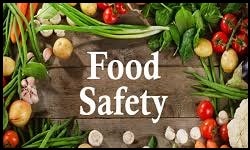
An agricultural waste management system (AWMS) is a planned system in which all necessary components are installed and managed to control and use by-products of agricultural production in a manner that sustains or enhances the quality of air, water, soil, plant, animal, and energy resources. The primary objective of most agricultural enterprises is the production of marketable goods. To be successful, the farm manager must balance the demand on limited resources among many complicated and interdependent systems, often including six basic functions : Production, Collection, Transfer, Storage, Treatment, Utilization

Agricultural Engineering is the area of engineering concerned with the design, construction and improvement of farming equipment and machinery. Agricultural engineers integrate technology with farming. For example, they design new and improved farming equipment that may work more efficiently, or perform new tasks. They design and build agricultural infrastructure such as dams, water reservoirs, warehouses, and other structures. They may also help engineer solutions for pollution control at large farms. Some agricultural engineers are developing new forms of biofuels from non-food resources like algae and agricultural waste. Such fuels could economically and sustainably replace gasoline without jeopardizing the food supply.
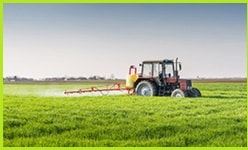
Biofertilizer technology has shown promise for integrated nutrient management through biological Nitrogen fixation (BNF). Biofertilizers may also be used to improve Phopshate availability to crops. The efficacy of inoculants can vary with inoculant type, crop species, formulation, soil nutrient level, soil pH/type, existence of relevant microbes in the soil, and weather conditions. Biofertilizers are living organisms that enrich the nutrient quality of the soil. It refers to the use of microbes instead of chemicals to enhance the nutrition of the soil, it is also less harmful and does not cause pollution.
Main roles of biofertilizers:
-
Make nutrients available.
-
Make the root rhizosphere livelier.
-
Growth-promoting substances are produced.
-
More root proliferation.
-
Better germination.
-
Improve the quality and quantity of produce.
-
Improve the fertilizer use efficiency.
-
Higher biotic and abiotic stress tolerance.
-
Improve soil health.
-
Residual effect.
-
Make the system more sustainable
“Biofertilizers are the product containing carrier based (solid or liquid) living microorganisms which are agriculturally useful in terms of nitrogen fixation, phosphorus solubilization or nutrient mobilization, to increase the productivity of the soil and/or crop"
Biofertiliser applications : Seed treatment | Seedling root dip treatment | Soil treatment
Transgenic plants are plants that have been genetically engineered a breeding approach that uses recombinant DNA techniques to create plants with new characteristics. They are identified as a class of genetically modified organism (GMO). The aim is to introduce a new trait to the plant which does not occur naturally in the species. A transgenic plant contains a gene or genes that have been artificially inserted. This process provides advantages like improving shelf life, higher yield, improved quality, pest resistance, tolerant to heat, cold and drought resistance, against a variety of biotic and abiotic stresses. Cisgenic plants are made up of using genes, found within the same species or a closely related one, where conventional plant breeding can occur. Some breeders and scientists argue that cisgenic modification is useful for plants that are difficult to crossbreed by conventional methods
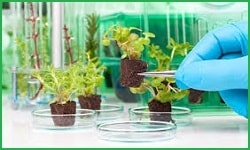
Agricultural business management is the use of business fundamentals to improve the agricultural industry and farm production. Agricultural business management, also called agribusiness management, applies business theories and practices to the agricultural industry to lower costs, boost profits and ensure that farm or food products are grown and distributed effectively. Agricultural business, also known as agribusiness, is the farming, management, production, and marketing of agricultural commodities, such as livestock and crops. The agricultural business field includes resource management, farming, conservation and crop improvement.

The goal of irrigation management is to use water in the most profitable way at sustainable production levels. For production agriculture this generally means supplementing precipitation with irrigation. Irrigation management with regulated water deficit allows a better use of rain water and stimulates deepening of the root system, increasing the volume of the soil which is explored by the roots of the plants. The applied water depth in each irrigation is lower than the water quantity necessary for the crop, but its value must be enough not to significantly affect the development and productivity of the crop. It is crucial to product quality in vegetable crops. Transition in the certain region from dryland to irrigated agriculture, or from flood and low-efficiency sprinkler irrigation, to center pivot and drip irrigation systems. The content of some phytochemicals is related to fruit size and maturity stage, traits that are dramatically impacted by irrigation; however, the relationship between irrigation and phytochemical content is complex.

Organic foods and beverages offer ample advantages over conventional foods such as health benefits, free of harmful chemicals, and others. The global market is poised to witness significant growth during the forecast period, owing to increase in income levels, rise in awareness regarding advantages of organic products, and advancements in organic farming techniques. The demand for organic food and beverages is anticipated to increase day by day by. Organically grown fruits and vegetables have high nutritive value, and are free from pesticides and other chemicals. Furthermore, organic nondairy beverages are in high demand among consumers due to increase in health awareness among consumers.

Agricultural climatology is a branch of science that concerns itself with the influence of climate on the cultural conditions of agricultural plants, animal husbandry, the occurrence of detrimental influences (both biological and weather conditioned) especially on agricultural operating methods. Weather and its longer term variant, climate, remain among the most important uncontrollable variables in agricultural production systems. The climatology group is involved in a wide variety of agrometeorological and agroclimatological research pattern, decision making for the length of the growing season, the relation of growth rate and crop yields to the various climatic factors and hence the optimal and limiting climates for any given crop, the value of irrigation, and the effect of climatic and weather conditions on the development and spread of crop diseases. This discipline is primarily concerned with the space occupied by crops, namely, the soil and the layer of air up to the tops of the plants, in which conditions are governed largely by the microclimate.

13th International Conference on Agriculture and Plant Science July 12-13, 2019 Osaka, Japan | European Conference on Agrotechnology and Horticulture July 11-12, 2019 Ljubljana, Slovenia | International Conference on Organic Farming & Sustainable Agriculture July 18-19, 2019 Luxembourg City Luxembourg | European Conference on Farm Management System May 06-07, 2019 Amsterdam, Netherlands | 12th World Congress on Plant Biotechnology & Agriculture June 12-13, 2019 Prague, Czech Republic | International Conference on Food & Beverages September 09-10, 2019 Singapore | Plant Science and Agriculture Research 2019 Sep 11-12, 2019 London, United Kingdom | Euro Belgium Food Science and Agriculture Summit May 13-14, 2019 Brussels, Belgium | World Dairy and Poultry Tech and Expo Jan 29-30, 2019 Brussels, Belgium | 14th International Conference on Agriculture & Horticulture August 15-16, 2019 Rome, Italy
Europe: The European Society for New Methods in Agricultural Research (ESNA); The European Association of Agricultural Economists (EAAE); European Society for Agricultural and Food Ethics (EurSafe); The European Federation of Biotechnology (EFB); The Phytochemical Society of Europe (PSE) European Rural History Organisation (EURHO); The European Environment Agency (EEA); The Federation of European Societies of Plant Biology; The Global Plant Council (GPC) ; The European Plant Science Organisation; The European Society for New Methods in Agricultural Research (ESNA)
USA: Alliance of Crop, Soil, and Environmental Science Societies (ACSESS); The American Horticultural Therapy Association (AHTA); The American Horticultural Society (AHS); The American Phytopathological Society (APS); International Society for Horticultural Science American Society of Plant Biologists (ASPB); Soil Science Society of America (SSSA); Crop Science Society of America (CSSA); American Society of Agronomy (ASA); Weed Science Society of America (WSSA)
Asia Pacific: Crop Science Society of Japan (CSSJ); The Asian Crop Science Association (ACSA); The Asia and Pacific Seed Association (APSA); Asian Pacific Weed Science Society (APWSS); Asia & Pacific Plant Protection Commission(APPPC); Asian Vegetable Research and Development Center (AVRDC) Asia-Pacific Association of Agricultural Research Institutions (APPARI); Australian Bureau of Agricultural and Resource Economics and Sciences (ABARES); The National Vegetable Society (NVS); African Seed Trade Association (AFSTA); National Centre for Genetic Engineering and Biotechnology (BIOTEC)
Introduction
Productive Agriculture and Organic farming methods combine the scientific knowledge of ecology and modern technology with traditional farming practices based on naturally occurring biological processes. Relatively recent innovations in seeds, chemicals and fertilizers have enabled agricultural producers to meet the ever-growing demands of a hungry world population. Even with the rapid increases in agricultural productivity, however, challenges for the agriculture industry to supply the growing global economy with sufficient supplies of agricultural staples are greater now than ever before.
Scope and importance
The basic principle in the organic farming system is to produce maximum yield with the highest possible quality. At the same time, it should not affect the soil fertility, soil health, and environment. Due to the extensive use of chemical fertilizers, there is a huge toll on humans with the poisonous effects. Hands more and more people are in search of organic fruits and vegetables. Hence there is a steep increasing the demand of organic farming system for Organic fruits, vegetables, and foods.
Why to Attend ???
The significance of agriculture in human life is significant. Agriculture and agricultural products are essential for us. Food, energy, medicine and so many things we are able to get from agriculture. This conference seeks to bring all such scientist, Noble Laureate, researcher, research scholar, students and people together who are involved in this field and provide them to discuss their innovation, exchange ideas and interact with each other.
Agricultural perspectives
-
The Asia region is a decisive component in the global food chain, accounting for 19% of total global food and agriculture exports and 31% of total food and agriculture imports
-
Asia’s large and growing population, coupled with rising incomes and a burgeoning middle class, will continue to drive demand for food & agricultural commodities and resources
-
On the other hand, Asia cannot produce enough to support itself. Limited arable land, inadequate water and poor resource management, low farm yields, environmental and soil degradation and infrastructure inadequacy are limiting production. Consequently, Asia and especially China’s need for imports and investment locally and abroad is likely to increase
-
Asia agribusiness and food & agriculture companies are likely to grow in size and scope to meet the increasing demand, national policies, rising organisational capabilities, and integration and consolidation throughout the value and supply chains
Factors limiting the agricultural production potential
Limited arable land and inadequate water resources in Asia form a natural ceiling to agricultural supply. Consolidation of farmland and better water management have the potential to boost production. At the same time, conflicting demands in land usage and water pollution act as constraints. Given a growing population and increasing demand for cereals for both food and feed, sustained increases in yields are required in Asia. However, factors such as changes in cropping patterns and diminishing returns on modern seed varieties have led to a stagnation of production growth in the last two decades. Increased use of fertilisers as farmers try to maintain productivity is also progressively degrading soil quality in many places. Increased usage of chemical pesticides has further compounded the issue of soil quality and environmental pollution. Here below are some of the major limiting Factors
-
Small and fragmented holding size
-
Water will be a key limiting factor
-
Self-sufficiency policy
-
Rising rural wages
-
Impact of climate change
-
The region lags in R&D spend in agriculture
-
Investment in physical infrastructure (roads, ports, railway terminals)
-
Storage and cold chain logistics
-
Technology investment to improve farm productivity and farm-business connectivity
Country Profiles with International, Asia and Oceania Emerging Markets at China and Hong Kong, India, Indonesia, Malaysia, Philippines, Thailand, Vietnam, New Zealand, Australia
Fund Allotment to Agriculture & Organic farming Research
Agriculture Finance & Agriculture Insurance
-
Agriculture finance empowers poor farmers to increase their wealth and food production to be able to feed 9 billion people by 2050.
-
Our work in agriculture finance helps clients provide market-based safety nets, and fund long-term investments to support sustainable economic growth.
-
Demand for food will increase by 70% by 2050; at least $80 billion annual investments will be needed to meet this demand.
-
Grant Opportunities : International Fund for Agricultural Development (IFAD) | Terra Viva Grants | The Foundation Center | International Human Rights Funders Group | Global Giving’s | Environmental Defender Law Center | Philanthropic News Digest | Asia Pacific Philanthropy Consortium (APPC) | Global Philanthropy Alliance | The Indigenous Peoples Assistance Facility (IPAF) | Global Facility for Disaster Reduction and Recovery (GFDRR) | FOMA Charitable Trust | Global Index Insurance Facility (GIIF) | Global Food Price Crisis Response Program (GFRP) | Global Food Safety Partnership (GFSP)
Major Agricultural Industries in Worldwide:
The number of agricultural industries and services is growing at a faster rate in all around the world covering Asia, Europe, Africa, North and South America which are major regions of the world. Top 20 industries with their country name have been enlisted below:
-
Kerry Group, Ireland
-
Vilmorin, France
-
Adler Seeds, US
-
China Agri-Industries Holdings, China
-
ContiGroup Companies, Belgium
-
Case Corporation, US
-
Golden State Foods, US
-
Heritage Foods, India
-
Noble Group, South America
-
The Mosaic Company, US
-
Monsanto, US
-
Wayne Farms, US
-
Dawn Meats, Ireland
-
Groupe Limagarin, France
-
Bayer Crop Science, Germany
-
New Holland Agriculture, Italy
-
John Deere Tractor, US
-
CLAAS, Germany
-
Skellerup, New Zealand
-
Technofarm International, Libya
Agriculture Research centers worldwide:
-
Consultative Group for International Agricultural Research, France
-
Africa Rice Center, Benin
-
Bioversity International, Italy
-
Center for International Forestry Research (CIFOR), Indonesia
-
International Center for Tropical Agriculture (CIAT), Colombia
-
International Center for Agricultural Research in the Dry Areas (ICARDA), Lebanon
-
International Crops Research Institute for the Semi-Arid Tropics (ICRISAT), India
-
International Food Policy Research Institute (IFPRI), United States
-
International Institute of Tropical Agriculture (IITA), Nigeria
-
International Livestock Research Institute (ILRI), Kenya
-
International Maize and Wheat Improvement Center (CIMMYT), Mexico
-
International Potato Center (CIP), Peru
-
International Rice Research Institute (IRRI), Philippines
-
International Water Management Institute (IWMI), Sri Lanka
-
World Agroforestry Centre (International Centre for Research in Agroforestry), Kenya
-
WorldFish Center (International Center for Living Aquatic Resources Management), Malaysia
Global Agriculture Universities:
-
University of California, U.S.
-
China Agricultural University, China
-
Universidade de São Paulo, Brazil
-
Ghent University, Belgium
-
Aarhus University, Denmark
-
University Hohenheim, Germany
-
University of Guelph, Canada
-
University of Copenhagen, Denmark
-
University of Western Australia, Australia
-
University of Helsinki, Finland
-
Swedish University of Agricultural Sciences, Sweden
-
University of Valencia, Spain
-
University College Dublin, Ireland
-
University of Reading, United Kingdom
-
Universidade do Porto, Portugal
-
National Taiwan University, Taiwan
-
Massey University, New Zealand
-
National Taiwan University, Taiwan
-
University College Dublin, Ireland
-
Cornell University, United States etc...
Japan Major Universities:
-
Tokyo University of Agriculture and Technology
-
Kyoto Prefectural University
-
Hokkaido University
-
Kyushu University
-
Nagoya University
-
Kobe University
-
University of Tsukuba
-
Tohoku University
-
Chiba University
-
Osaka Prefecture University
-
Gifu University
-
Shinshu University
-
Ibaraki University
-
Shizuoka University
-
Keio University
-
Waseda University
References : https://www.ers.usda.gov/publications/pub-details/?pubid=40694
https://economics.rabobank.com/publications/2016/february/asia-pacific-agricultural-perspectives/
https://www.worldbank.org/en/news/press-release/2018/03/23/world-bank-lays-out-vision-for-cleaner-safer-agriculture-in-east-asia
https://www.statista.com/statistics/651784/asia-pacific-growth-rate-of-agriculture-sector-by-country/
https://www.ifad.org/en/
https://www.apec.org/
https://www.euromonitor.com/
http://www.maff.go.jp/e/data/stat/
https://www.marketsandmarkets.com/Market-Reports/organic-fruits-vegetables-market-230995550.html
https://www.grandviewresearch.com/industry-analysis/organic-foods-beverages-market
http://www.agropolis.org/cooperation/CGIAR-international-agricultural-research-centers.php
https://www.cgiar.org/research/research-centers/
http://mofa.gov.gh/site/?page_id=6501
https://knoema.com/JPAGRSTAT2017/japan-agricultural-statistics?prefecture=1000000-japan
http://www.unsiap.or.jp/
http://ricepedia.org/japan
http://www.fao.org/asiapacific/perspectives/agricultural-statistics/global-strategy/countries/en/
https://www.unescap.org/our-work/statistics/environment-and-agricultural-statistics
Abstract Submission Guidelines:
With absolute enthusiasm and the Will to influence, we extend a warm invitation to attend the Global summit on Agriculture & Organic farming, August 17-18, 2020 in the beautiful city of Tokyo, Japan.
This year with the refreshing theme on “Sustainable Eco-Friendly Agricultural Approach to Crop Improvement”. All abstracts must be written exclusively in English (including the title, abstract text, author names and affiliations).
The length of the abstract must not exceed 300 words including short biography of the author (limited to 150 words).
All the abstracts will be reviewed by the scientific committee and all the accepted abstracts will be published in the conference proceeding books.
Submit your Abstract online:
https://agriculture.agriconferences.com/abstract-submission.php
Mark Important Dates:
Conference Dates: August 17-18, 2020
Abstract Submission Deadline: May 18, 20, 2020
Early Bird Registration Deadline: December 02, 2019
Final Call for Registration: July 27, 2020
Registration Benefits
Only Registration Includes:
-
Access to All Sessions and Workshops
-
CPD accredited
-
A free paper abstract in our Journal for free of cost
-
Accepted Abstracts will be published in respective supporting journals,
-
Each abstract will be labelled with a DOI provided by Cross Ref.
-
Certificate of presentation by the International Organizing Committee (IOCM)
-
Reception banquet
-
Coffee break during the conference
-
2 days breakfast during the conference
-
2 days Lunch during the conference
-
Handbook & Conference Kit
-
Certificate of Presentation
-
B2B meetings
Package A
Only registration benefits + Accommodation for 2 nights
Package B
Only registration benefits + Accommodation for 3 nights
For Group registration
Contact: Richie Bronson (Program Manager)
Email: agriculture@asiameets.com
WhatsApp: +32-466-903-064
Registration Link: https://agriculture.agriconferences.com/registration.php
